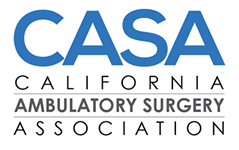Complete Story
08/04/2021
State Public Health Officer Order of July 26, 2021
State Public Health Officer Order of July 26, 2021
Yesterday, July 26, 2021, the California Department of Public Health released a public health order to address the COVID-19 pandemic lingering challenges. The Order takes effect on August 9, 2021, at 12:01 am. Facilities must be in full compliance with the Order by August 23, 2021.
The order states that, “current requirements of staff in health care settings, such as universal mask requirements for all staff, are not proving sufficient to prevent transmission of the Delta variant, which is more transmissible and may cause more severe illness. Vaccination against COVID-19 is the most effective means of preventing infection with the COVID-19 virus, and subsequent transmission and outbreaks. As we respond to the dramatic increase in cases, transmission prevention measures must be increased for the significant proportion of unvaccinated health and congregate care workers remaining to reduce the chance of transmission to vulnerable populations. Reinforcement of well-fitting facemasks for source control, emphasis on increased respiratory protection with respirators in some settings, and regular testing (when appropriately followed by isolation of individuals who test positive), should contribute to reduction of transmission risk in these high-risk settings to mitigate the absence of vaccination protection.”
Ambulatory Surgery Centers are listed among the other health care settings that the order applies too. A brief summary of the order is below and all ASCs should be familiar with and incorporate policies around this public health order.
- Verify vaccine status of all workers.
- Have a plan in place for tracking verified worker vaccination status. Records of vaccination verification must be made available, upon request, to the local health jurisdiction for purposes of case investigation.
- Workers who are not fully vaccinated, or for whom vaccine status is unknown or documentation is not provided, must be considered unvaccinated.
- ASCs must strictly adhere to current CDPH Masking Guidance. To the extent they are already applicable, facilities must also continue to adhere to Cal/OSHA's standards for Aerosol Transmissible Diseases (ATD), which requires respirator use in areas where suspected and confirmed COVID-19 cases may be present, and the Emergency Temporary Standards (ETS) that requires all unvaccinated workers be provided a respirator upon request.
- Asymptomatic unvaccinated or incompletely vaccinated workers are required to undergo diagnostic screening testing.
- Workers may choose either antigen or molecular tests to satisfy this requirement, but unvaccinated or incompletely vaccinated workers must be tested at least once weekly with either PCR testing or antigen testing. More frequent testing improves outbreak prevention and control and is encouraged, especially with antigen testing. Any PCR (molecular) or antigen test used must either have Emergency Use Authorization by the U.S. Food and Drug Administration or be operating per the Laboratory Developed Test requirements by the U.S. Centers for Medicare and Medicaid Services.
- Unvaccinated or incompletely vaccinated workers must also observe all other infection control requirements, including masking, and are not exempted from the testing requirement even if they have a medical contraindication to vaccination, since they are still potentially able to spread the illness. Previous history of COVID-19 from which the individual recovered more than 90 days earlier, or a previous positive antibody test for COVID-19, do not waive this requirement for testing.
- Diagnostic screening testing of asymptomatic fully vaccinated workers is not currently required. However, fully vaccinated workers may consider continuing routine diagnostic screening testing if they have underlying immunocompromising conditions (e.g., organ transplantation, cancer treatment), which might impact the level of protection provided by COVID-19 vaccine.
- Facilities with workers required to undergo workplace diagnostic screening testing should have a plan in place for tracking test results, conducting workplace contact tracing, and must report results to local public health departments. There are IT platforms available that can facilitate these processes for facilities.
- "Worker" refers to all paid and unpaid persons serving in health care, other health care or congregate settings who have the potential for direct or indirect exposure to patients/clients/residents or SARS-CoV-2 airborne aerosols. Workers include, but are not limited to, nurses, nursing assistants, physicians, technicians, therapists, phlebotomists, pharmacists, students and trainees, contractual staff not employed by the health care facility, and persons not directly involved in patient care, but who could be exposed to infectious agents that can be transmitted in the health care setting (e.g., clerical, dietary, environmental services, laundry, security, engineering and facilities management, administrative, billing, and volunteer personnel).


